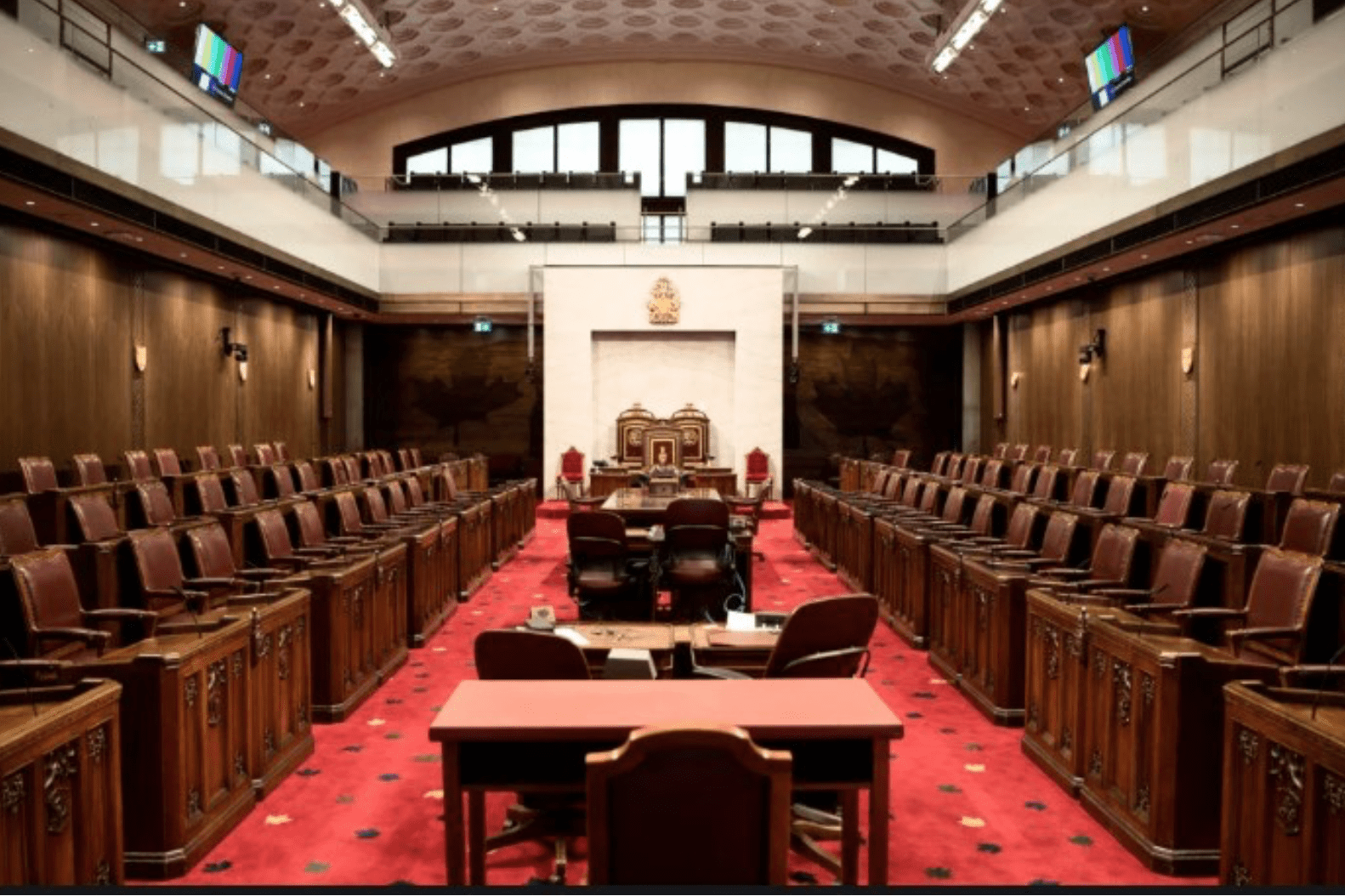The enthusiasm by new senators to upend the rules of the Upper Chamber continues unabated, as Senators Murray Sinclair and Pierre Dalphond have declared that they too want to propose new rule changes that would make it easier to get private members' bills from the House of Commons, as well as Senate public bills (their PMB equivalents) easier passage through the Senate. I cannot stress enough how bad of an idea this would be. There is nothing wrong with the way the rules in the Senate currently operate there is, however, a problem with new senators who refuse to learn the rules and work within them, or to actually put the work in to get private members' bills or their own Senate public bills passed.
"The Senate rules make it extremely difficult to vote on private Members' bills passed by the elected House of Commons," wrote Sinclair in his press release. "As we saw, Senators cannot as a matter of right decide on bills, even after lengthy debate. The House has a fairer and more transparent system of voting, and the Senate needs to catch up."
"In an appointed chamber, blocking votes on House bills is highly undemocratic," wrote Dalphond for his portion of the release. "The current Senate rules are unfair to Members of Parliament and more importantly to the Canadians they serve."
They're both wrong, and more to the point, Sinclair has consistently been the author of his own misfortunes when it comes to these bills. And if they think the Commons has a better system, then they're utterly delusional.
The pair say that because of "partisan obstruction" (untrue), the Senate didn't bring 15 PMBs to a vote, including Rona Ambrose's bill on sexual assault training for judges and Romeo Saganash's UNDRIP legislation, or the Senate bill on banning whale captivity. There is a lot of presumption that these were good bills, or that the problems around them weren't the cause of some of the delays or the unspoken decision to allow some of them to die on the Order Paper because it was the easier option to euthanize them without incurring the wrath of self-righteous MPs and pundits who have the mistaken impression that just because a bill passes the Commons, that it's somehow good or viable.
Sinclair and Dalphond have based their rule changes on a 2014 Conservative proposal, which should raise alarm bells for anyone who was around in the Chamber at that point which the majority of senators were not, given how much turnover in membership there has been. Those of us who were there, however, will recall the drama around two particular Conservative private members' bills Bills C-377 and C-525 both of which were attacks on unions, and it absolutely split the Senate's Conservative caucus, so much so that I heard there was serious consideration amongst some of its members that they might breakaway and re-form a Progressive Conservative caucus (they didn't). The Harper government had nevertheless decided to use these bills as de facto government legislation (something they had a habit of doing, both to smuggle contentious issues through the Commons process with little scrutiny, or to put a different face than the minister's to an issue), but were unable to force time allocation on them in the Senate due to overwhelming opposition both from the Liberals, and their own members who either voted against attempts to force votes, or who simply abstained. In the end, the bills did pass, but so late in the parliament that the election was held shortly thereafter and the new Liberal government could repeal them before they came into effect.
It doesn't surprise me that neither Sinclair nor Dalphond knew what happened in 2014, but if they had bothered to ask other senators from the era, particularly the former Liberals, they would know that allowing PMBs to be time allocated which is essentially what they are asking is opening them up to abuse, particularly if you have a government that is content to abuse the PMB process for their own ends.
One truth that nobody likes to talk about is that the vast majority of PMBs are terrible. Many of them are poorly drafted, but they receive little scrutiny because of the time allocated system by which they exist within the Commons two hours of debate at second reading, possibly an hour or two at committee, usually with friendly witnesses, two more hours of debate for report stage and third reading combined, and a vote. Many bad private members' bills pass on sentiment alone it sounds like a good idea, so MPs all vote for it, but it's not until it reaches the Senate that the problems emerge, usually when they get better witnesses before committee. The fact that most of them die on the Order Paper is actually a blessing and a sign that the Senate is doing its job of sober second thought.
The other inconvenient truth is that Sinclair himself is to blame for why it took both the whale bill and the UNDRIP bill to the finish line he delayed in speaking to the bills when he was supposed to, and there were instances when he didn't call the vote on them when he had agreed to. But in cases where there was opposition to any of these bills, there were already procedural tools available to force votes if they didn't want to negotiate over the timelines (as they should have), but there seems to be a reluctance by some of these new senators to put the work in, and that includes sitting late (and Sinclair is talking about changing rules around the Senate's dinner break something that I would warn against, because eliminating it in the House of Commons destroyed the collegiality in that chamber). In fact, the Government Leader or occasionally the leadership of the Independent Senators Group would often vote to adjourn shortly after the dinner break, despite the Order Paper not having been gone through. If they had sat late to do the work, those bills would have been debated and voted on sooner.
And that seems to be part of the issue here that there is a desire from these new senators to make the legislative process "easier," but easier has plenty of unintended consequences, especially when you have a government that is willing to exploit those rules. Senators should employ extreme caution when they want to start changing the rules when they don't have enough experience with the current ones to understand why they exist in their current form. And these changes, I can assure you, are simply asking for trouble.
Photo Credit: The Senate of Canada








